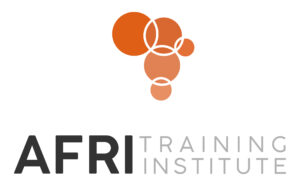As the world prepares to mark World Patient Safety Day on 17 September, under the theme “Safe care for every newborn and every child,” two South African organisations are calling for renewed urgency in strengthening the workforce pipeline that underpins healthcare delivery.
In a country where hospitals are under strain and chronic skilled staff shortages persist, this year’s theme carries particular weight. Afri Training Institute and Immploy Recruitment Agency, both part of the Solutions for Africa (SFA) Group, believe that patient safety cannot be achieved without an equal focus on rigorous recruitment and continuous professional development.
“Research shows that South Africa loses about 6,000 doctors and nurses every year. That kind of loss puts enormous strain on patient safety,” says Agnes Nicholls, Founder of Immploy and the SFA Group. “You see the impact immediately: wards left to run on skeleton staff, nurses stretched across too many patients, and junior recruits pushed into high-risk roles without the support they need. In those conditions, mistakes are almost inevitable, and the patients who pay the price are often children and the elderly.”
“Recruitment integrity is not up for debate. We must ensure that the people we place are not only qualified on paper but also ethical and compassionate in practice. That becomes critical in areas such as paediatrics and neonatal care, where even the smallest error can change a life forever. When hiring standards slip, it is not only patients who are at risk. The public starts to lose faith in the entire healthcare system,” Nicholls adds.
The cracks in patient safety
“South Africa’s healthcare system is under pressure on every front, for example, overcrowded hospitals, too few resources, and staff running on empty. In those conditions, safety slips. We see the same issues again and again: infections that should have been prevented, medication errors, patients falling, and communication breakdowns between caregivers and families,” says Rozanne Dreyer, Head of Operations at Immploy Recruitment Agency.
“These risks are not just the result of system strain. They also point to skills gaps. Too often, professionals are placed without enough ongoing support or exposure to current safety standards. I have seen placements collapse because staff arrive in paediatric wards without recent neonatal resuscitation training, or because burnout drives experienced nurses out of rotation just when they are most needed. Our role is to close that gap by ensuring every candidate we place has been properly vetted, trained, and assessed for their commitment to patient-centred care,” adds Dreyer.

Training as a frontline defence
Immploy’s training programmes focus on embedding patient safety into daily practice, from infection prevention and control to safe medication administration and clinical risk management. Courses are accredited, simulation-based, and developed in collaboration with healthcare specialists to reflect national standards and evidence-based best practice.
“The future of safe care depends on continuous education,” says Dreyer. “It is never enough to study once and hope that knowledge carries you through an entire career. Skills have to be reinforced. Whether it is running neonatal resuscitation drills, practising safe medication checks, or learning how to prevent patient falls, staff need to refresh these principles repeatedly.”
“And the impact is clear. When we revisit dosage and double-check protocols, medication errors drop. When we refocus on infection prevention, cases of sepsis in children decrease. You can see the difference in the wards. Our approach is to design training that connects directly to the realities on the ground, the scenarios staff face every day,” adds Dreyer.
Holistic patient experience matters
Sandra Pretorius, General Manager at Afri Training Institute, says patient safety is about more than ticking boxes or following checklists, but also comes down to how people show up at the bedside.
“Yes, staff need the right clinical knowledge, but they also need the confidence to talk openly with patients, to work together as a team, and to stop and think about their own practice. When those behaviours sit alongside the technical skills, you see fewer mistakes and better outcomes for patients,” says Pretorius.
Additionally, while clinical excellence remains central to patient safety, the broader ecosystem of care relies equally on the competence and compassion of administrative and ancillary staff. From receptionists and clerks to porters and facilities teams, these professionals shape the first and lasting impressions of care environments. Afri Training Institute supports with such broader recruitment, and its training portfolio includes courses in computer literacy, business administration, project management, and hygiene services – ensuring that every individual, regardless of role, is equipped to uphold safety, dignity, and operational excellence.
“Patient safety isn’t just about clinical protocols – it’s about every touchpoint in the care journey. A well-trained receptionist who communicates clearly, or a porter who manages patients with empathy and efficiency, contributes directly to safer, more dignified outcomes. At Afri Training Institute, we believe that empowering these often-overlooked roles is essential to building resilient, people-centred health systems,” adds Pretorius.
Collaboration is the missing link
Both Afri Training Institute and Immploy stress that progress will depend on stronger collaboration across the sector. Recruitment agencies, training providers, healthcare facilities, and the government must work hand-in-hand to address shortages, expand access to training, and retain skilled professionals.
“Patient safety cannot be treated as an isolated initiative,” says Nicholls. “It starts with who we hire, how we train them, and how we support them to stay in the system. That requires alignment at every level, from workforce planning to the culture inside hospitals.”
A call to action
World Patient Safety Day serves as a reminder that vulnerable groups, particularly newborns and children, rely on healthcare systems that are safe, dependable, and staffed by competent professionals.
“Children are not small adults. Their care requires specialised knowledge, compassion, and vigilance. That is why ethical recruitment and continuous training must be at the heart of our healthcare system. Every patient deserves not just treatment, but safe treatment from the very start,” concludes Nicholls.




